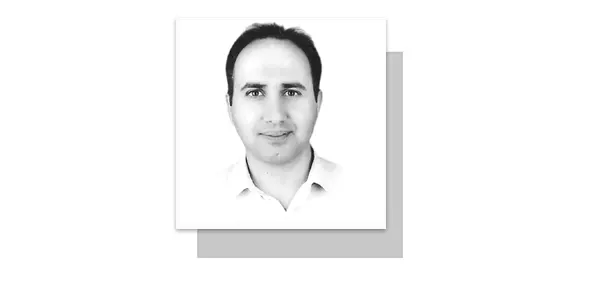SINCE its inception, Pakistan has been no stranger to conspiracies and turmoil that have consistently hindered its development and progress. The nation, born out of a dream for an independent, sovereign homeland, has seen its aspirations systematically sabotaged by forces, both internal and external, that fear its potential. Every time Pakistan has stood at the precipice of significant advancement, it has been dragged back into chaos by those who have made it their mission to prevent its rise as a stable, self-sufficient state. The pattern is unmistakable, political leaders with the vision and resolve to move Pakistan forward are systematically removed, discredited, or silenced.
Nawaz Sharif, a three-time Prime Minister who dared to dream of a prosperous Pakistan. Each time he attempted to set the country on a path of development, he was removed from office under dubious circumstances. Whether it was through military interventions, judicial overreach, or coordinated political chaos, Sharif’s leadership was never allowed to flourish. His efforts to modernize infrastructure, stabilize the economy and strengthen international alliances were met with staunch resistance by those who preferred a weak and subservient Pakistan. The most glaring example of this is the China-Pakistan Economic Corridor (CPEC), a project that promised to transform Pakistan into a regional economic hub. As the Chinese President was arriving in Pakistan to cement agreements related to CPEC in 2014, the political environment in Islamabad was deliberately destabilized. Protests, sit-ins and orchestrated dissent created an atmosphere where such a monumental visit had to be postponed. The writing on the wall was clear, development that shifts Pakistan’s dependence away from traditional powers is unacceptable.
Benazir Bhutto’s story is no less tragic. Twice elected as Prime Minister, she too was ousted on charges that were never substantiated in any meaningful way. Her attempts to modernize the state, improve its global standing and empower the people were met with hostility from entrenched power structures that viewed her as a threat. Ultimately, her assassination marked the culmination of years of efforts to ensure that her progressive vision for Pakistan would never come to fruition. Her death was not just a personal tragedy but a national one, symbolizing how forces opposed to progress will stop at nothing, even murder, to maintain their grip on power.
The pattern continues, with leaders striving for Pakistan’s development consistently subjected to character assassination, imprisonment, or forced exile. These events are not isolated, they are part of a larger system designed to ensure that Pakistan remains a pawn in global geopolitics rather than an independent player. The use of political puppets and pliable regimes has been a hallmark of this strategy, with military dictatorships and weak civilian governments serving as tools to perpetuate this status quo. The alignment of these interests with external forces, particularly those that see a strong Pakistan as a challenge to their own dominance, has only exacerbated the problem.
The 2014 sit-ins offer a clear example of how this strategy unfolds. As CPEC’s first convoys symbolized a new era of economic growth, the then CM KP staged a protest at Burhan Interchange, not to celebrate, but to disrupt. Such theatrics were deliberate distractions aimed at undermining the project’s significance. Similarly, during international events like the SCO summit, disruptive protests signal internal instability, showing Pakistan’s inability to host dignitaries. These disturbances, often plotted in advance, include assaults on law enforcement, weaponizing mobs and targeting state institutions, all intended to destabilize the state’s authority and damage its global standing. This brings us to the larger question, why is a strong, independent Pakistan so threatening? The answer lies in geopolitics. Pakistan’s location, resources and potential make it a key player in regional and global affairs. A self-sufficient Pakistan aligned with China or Russia’s bloc represents a shift in the balance of power, challenging the hegemony of traditional powers that have long dictated the terms of engagement in South Asia. For these powers, a Pakistan that dares to chart its own course is unacceptable. The state’s internal divisions are exploited, with some of its own institutions complicit in perpetuating a system that prioritizes subservience over sovereignty.
The role of the military in this equation cannot be ignored. For decades, Pakistan’s military has acted as both a saviour and a saboteur, stepping in to fill the void created by weak civilian governments but also ensuring that those governments never become strong enough to challenge its dominance. This dual role has created a cycle of dependency that has stifled political maturity and economic progress. Today, the tactics may have evolved, with a veneer of impartiality masking behind-the-scenes manipulations, but the outcome remains the same.
While the resilience of the nation is admirable, it cannot thrive on endurance alone. Without substantial reforms, Pakistan risks becoming a cautionary tale of untapped potential. Yet, the spirit of larger population remains the greatest hope, a hope for a future where the country flourishes through strong institutions, inclusive governance, economic reform, a robust civil society and a foreign policy that prioritizes national interests. Pakistan must adopt a clear line on the separation of powers, with each institution focusing on its constitutional mandate. Without this, the nation will continue to suffer, as it has for the past 77 years, caught in cycles of dysfunction and missed opportunities. Only by preserving the integrity of its institutions and fostering balanced governance can Pakistan unlock its true potential, overcome external pressures and resist the economic manipulation and conspiracies that hinder its growth.
—The writer is PhD in Political Science and visiting faculty member at QAU Islamabad.
(zafarkhansafdar@yahoo.com)










